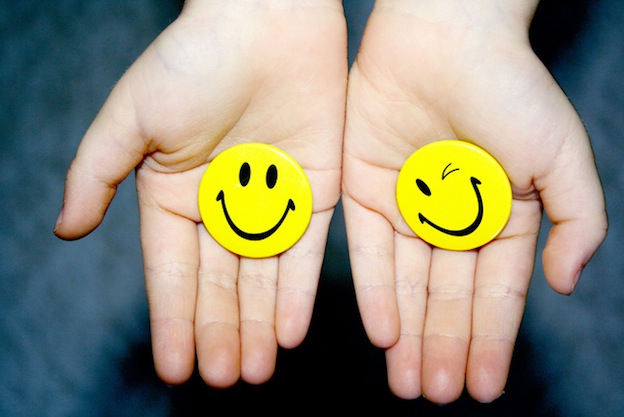SingaporeMotherhood | Baby & Toddler
July 2015
Does Your Child Need a Self-Esteem Boost?

Some kids seem to have it all figured out, while others struggle to keep up. We know that everyone has different talents and develops at varying paces, so the more important question is, how are they coping emotionally? Oxford Dictionaries defines self-esteem as “confidence in one’s own worth or abilities” – but what does this really mean for our children?
[banner][/banner]
Positive vs. Negative
According to author of Positive Pushing: How to Raise a Successful and Happy Child, Dr Jim Taylor, self-esteem acts as the foundation for everything children think and feel about themselves and how they interact with the world around them.
Positive self-esteem gives them confidence and motivation, empowers them to take reasonable risks and allows them to be emotionally vulnerable with others, thus enabling them to develop healthy relationships.
On the flip side, negative self-esteem results in feeling unloved and unworthy. Children with poor self-esteem feel insecure and are easily threatened. They are unwilling to take risks because they assume they will automatically fail.
What about children who seem to be overly confident? Dr Taylor explains that this is actually low self-esteem compensating for inadequacy and expressing itself as bravado, egotism, and narcissism.
On a Daily Basis
Parents will find that children with good self-esteem adapt more easily to new challenges or an unexpected change in schedule without becoming distraught and confused. They find solutions to problems they face and comply with age-appropriate expectations and responsibilities more effectively. They are also unafraid to ask for help from others when they run into issues they can’t handle on their own.
Dr Amy Reale, Senior Clinical Psychologist at the Dynamics Therapy Centre for Kids located in Forum the Shopping Mall, offers more examples.
“With an upcoming exam, a child with positive self-esteem may talk about his or her ability to do well, study reasonable amounts, and sleep and eat normally. The child will be able to speak about other things besides the exam and take some time for fun activities.
Also, children with more positive self-esteem tend to navigate social situations with greater ease; if there is a conflict, they will find a way to solve it without blaming themselves, becoming overly concerned by it, or making it a bigger problem.”
Tell-tale Signs
Children with poor self-esteem are familiar with anxiety, fear and sadness, often blaming themselves for things not within their control. They may experience bouts of depression, withdrawing into themselves. Those who show signs of being overly clingy may suffer from separation anxiety, which is another hint.
In school, they may show a lack of interest in learning and have difficulty performing academically. Socially they may struggle to make or keep friends and be afraid to voice their opinions; instead they try to please their peers excessively. When offered the chance to speak in public or sing at a school concert, they may either criticise their own performance harshly or decline altogether.
Paula, a single parent aged 33, shares about her nine-year-old son who is struggling at school. “He has this habit of acting especially silly whenever he is upset or stressed. I think he’s trying to block out his worries and hide them from me at the same time.”
Children with low self-esteem may also have more trouble concentrating and following directions. Other children may get angry with them because they are unable to share or play cooperatively. Other indications are frequent displays of irritability, anger and aggression, as well as disruptive behaviours. Once upset, it may be hard to calm them down.
“Children with poor or overly-inflated self-esteem may be more prone to these issues because their ability to cope and regulate their emotions is usually less developed, they tend to have less supports, and they may not accurately perceive themselves, others, or the situation in order to make objective and thoughtful decisions,” notes Dr Reale.
Boost your Child’s Self-esteem
• Focus on and praise your child for positive actions and choices. Rather than saying “good boy” or “good girl”, tell them how much you appreciated them putting their toys away, or that it was very kind of them to share their snack with a classmate.
• Put yourself in your child’s shoes, rather than fixate on negative behaviour. Ask yourself, what is my child trying to tell me about how she feels or what she needs emotionally? Then express your understanding and speak with your child about finding a way to improve the situation together.
• Find time to play with your child regularly and try to follow and praise your child’s ideas in the play. Spend time listening to your child, and chat about how she feels and what her interests are.
• Give your children unconditional love but do allow them to make mistakes. Reassure them that how much you love them has nothing to do with their successes or failures.
• Set reasonable and developmentally appropriate expectations for your child and follow up with equally reasonable consequences. Focus on the importance of effort rather than the end goal or the failure to meet the expectation.
• Give your child opportunities to build her competence and encourage reasonable risk-taking. Provide words of encouragement – “I know you’ll do great!” and refrain from criticising their efforts or micro-managing her life.
• Include your child in decision-making, such as where to go on your family vacation or which outfit to buy. Listen to her opinions, even if they differ from yours, and come to a compromise together.
• Role model positive self-talk and coping. For example, talk about problems you face at work, how you overcame them, and what you learnt in the process. Your child will learn that growing and learning are a part of life for everyone, children or adults.
You can also get help for your child at these places: KK Women’s and Children’s Hospital’s Psychology Service for Children, and REACH (Response, Early intervention and Assessment in Community mental Health), which provides help for students with emotional, social, and behavioural issues and disorders.
All content from this article, including images, cannot be reproduced without credits or written permission from SingaporeMotherhood.
Follow us on Facebook, Instagram, and Telegram for the latest article and promotion updates.







